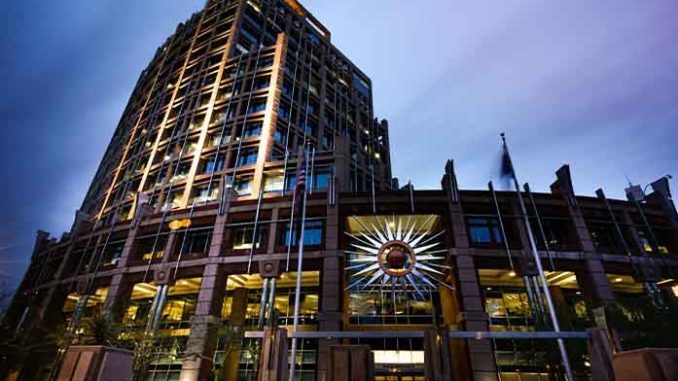
The Goldwater Institute is taking on the city of Phoenix and its union supporters who are accused of shutting the public out of its most recent contract negotiations. The process is funded by Phoenix taxpayers and affects, according to the Goldwater Institute, where their money is spent—in violation of Arizona’s Public Records Law.
On Wednesday, the Goldwater Institute sued the city to bring these public records to light.
The Goldwater Institute says that if you care about transparency, these latest rounds of negotiations got off on the wrong foot. Before negotiations with the city commence under Phoenix’s “Meet and Confer” ordinance, public-sector unions are required by city code to submit draft contract proposals for public comment. Despite following this protocol in the past, the Phoenix Law Enforcement Association (PLEA)—the union that represents most of the city’s police officers—decided to ignore the legal requirement this time around. By doing so, the union prevented the public from providing input on its proposals before the start of negotiations. The city acknowledged that the union’s refusal to provide a public draft of its contract proposals violated city code, but then did nothing to hold the union accountable for taking away the public’s seat at the table.
“The public’s business should be done in public, not behind closed doors,” says Goldwater Institute Staff Attorney Parker Jackson, lead attorney on the case. “The city of Phoenix has a duty to comply with state law—and the city’s own code—so that residents can find out what their government is up to.”
After Phoenix agreed to proceed behind closed doors, the Goldwater Institute stepped in and requested records relating to the negotiations, including any draft agreements and proposals received or created by the city. First, the city claimed that no draft agreements or draft proposals existed. Then, when Goldwater asked for the information again, the city denied the request, claiming that releasing such records “would hinder the negotiations process.” The city later said that it had at least some of the requested records but claimed that disclosing them “would harm the best interest of the City.”
The Goldwater Institute says that this ignores the fact that the city is supposed to be negotiating on the public’s behalf. And that those negotiations are funded by the public. And that the negotiations involve matters of pure public concern regarding how government employees will conduct the public’s business. And that the negotiations process should not have started without public input in the first place. And that, as a result, these records are obviously public records under Arizona law.
The Goldwater Institute filed suit against the city, asking the court to compel the city to stop hiding records about union negotiations from the public.
Fortunately, argues Goldwater, Arizona has broad public records laws requiring open and transparent government. Although there are limited exceptions allowing the government to withhold certain confidential records, these records do not fit within any of the legally recognized exceptions. In fact, Arizona courts have said that when analyzing the so-called “best interests of the state” exception, they look to the overall interests of the public, not just the government.
Goldwater attorneys believe labor agreements are particularly important documents for the public to see. Not only do they outline compensation and other policies for government employees, but they are also sometimes used to hide wasteful, corrupt, and unconstitutional practices like taxpayer-funded release time or dues deduction revocation restrictions.
